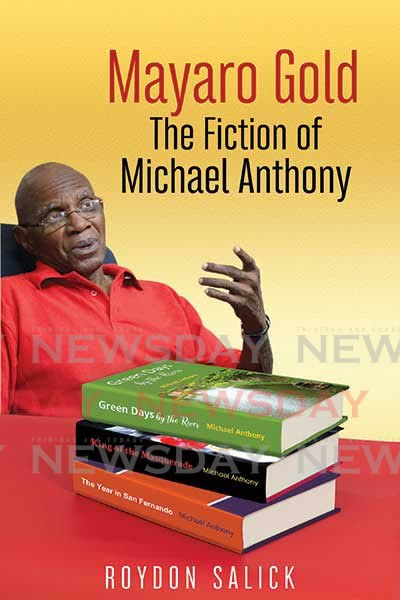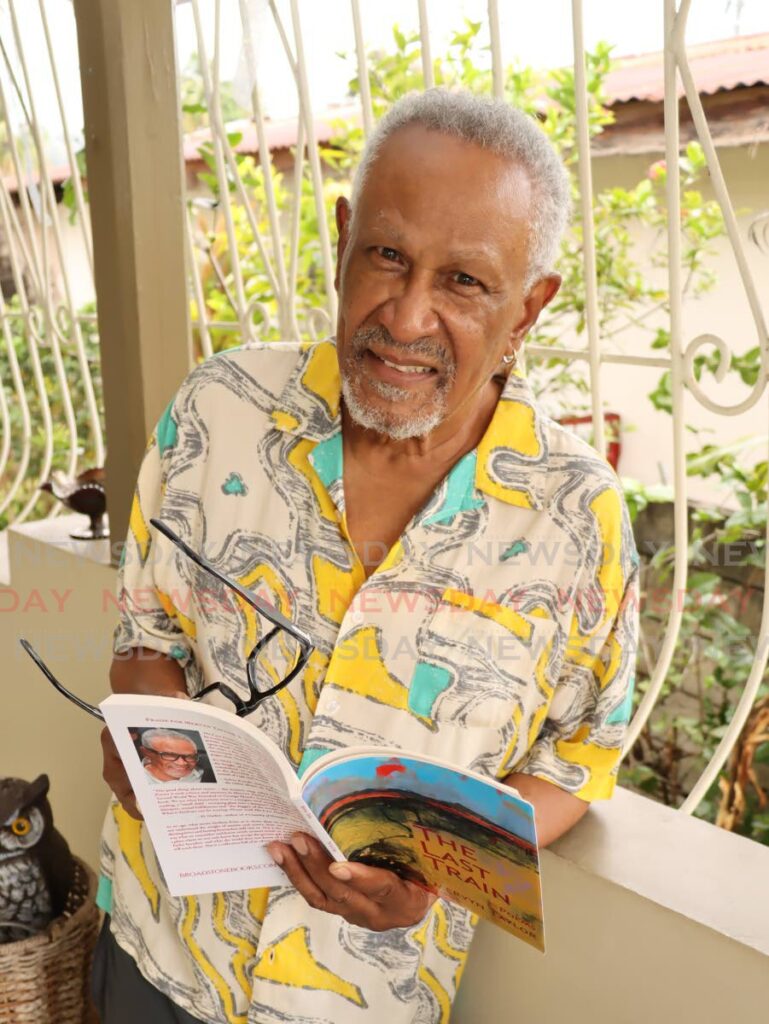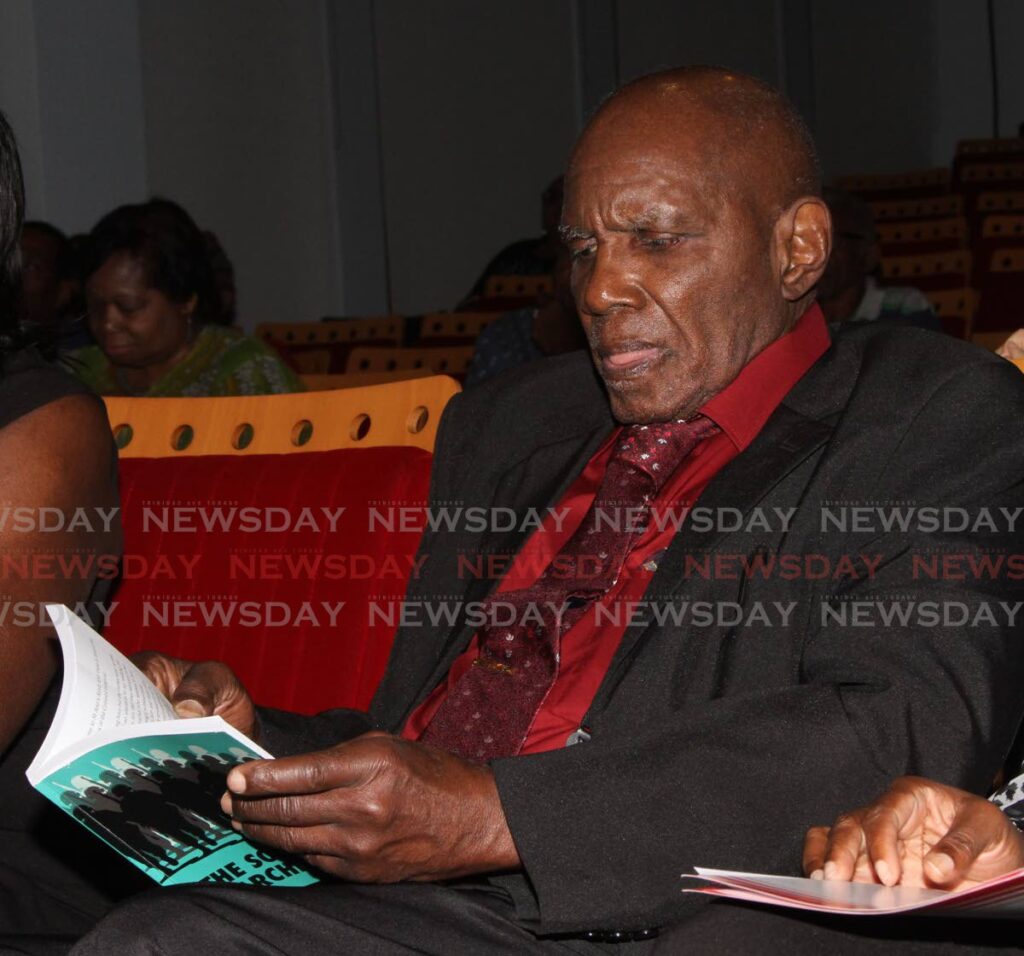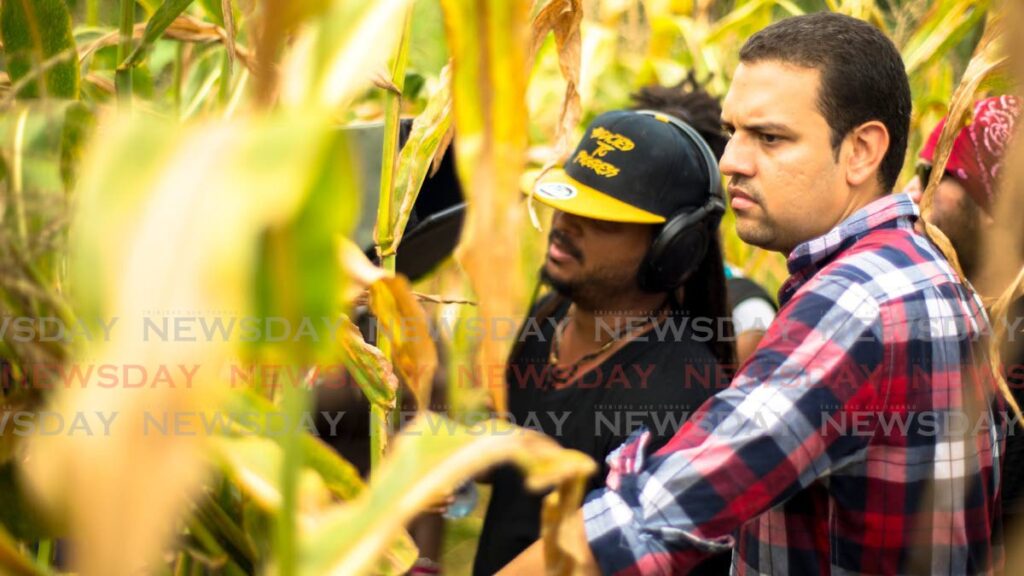Educators, writers praise Michael Anthony's Mayaro Gold

Michael Anthony’s novels and short stories never made an international splash like those of the late Nobel laureate VS Naipaul, but Anthony is arguably one of the most popular and most important writers to emerge from the Caribbean.
His ability to expose rural Trinidad and present compelling stories with timeless themes of family, love and friendship along with riveting conflicts regarding trust, deception and loyalty appeals to a wide range of readers.
For decades, his short stories and novels, particularly Green Days by the River, The Year in San Fernando and The Games Were Coming have been on the CXC English literature reading list.
Now those novels and many of Anthony’s short stories are the subjects of a literary analysis – Mayaro Gold The Fiction of Michael Anthony by UWI professor Roydon Salick. We are sorely lacking a body of literary analysis for Caribbean works so Salick’s contribution is both welcome and necessary,
Mayaro Gold is a gold mine of biographical and literary analysis which converge to offer students, scholars, avid readers and aspiring writers a glimpse into Anthony’s writing craft. While it will help students to analyse Anthony’s work, it is not a pedestrian piece of analysis found in study guides.
Instead, Mayaro Gold is a stellar academic work which encourages students and readers to think more deeply and more clearly about an author’s works. This book is an intriguing read for the questions it evokes about character development and the literary process. The nuggets Salick offers may lead readers in certain directions, but there is much room for readers to draw their own conclusions from the information and analysis given.
Many writers speak volumes about their creative process and what led them to writing. Anthony never did. If writing is a destiny, Anthony never articulated such a belief. Salick discusses this point which forms an essential question in determining the “aboutness” of this literary analysis. How does a writer mine literary elements to create brilliant stories if he never intended to write and he is unaware of his own writing process?
At a panel discussion and question and answer session before the special Independence Day showing on TTT a few years ago, Anthony looked baffled and said, “I don’t know,” when asked why he thought his work was used so much in schools.

Mayaro Gold is a traditionally structured literary analysis that begins with a short biography that places important notions in readers’ minds about the relationship between an author’s real life and literary works. Carefully and methodically Salick shows how growing up in Mayaro and living in San Fernando shaped Anthony’s literary career.
The introduction covers highlights of Anthony’s life from his birth in Mayaro on February 10, 1930 to his novels beginning with The Games Were Coming in 1963; then to The Briefcase in 2013. Part two exposes tales and short stories from Cricket in the Road in 1973 to Chieftain’s Carnival in 1993. Part three examines Anthony’s historical fiction from Bright Road to El Dorado in 1983 to the Lamplighter in 2013.
Like Samuel Selvon, Anthony digs deep to find the heart and soul of rural Trinidad. Unlike Selvon and Naipaul, Anthony spent little time abroad with only a brief sojourn in London and Brazil.
He grew up in poverty, but as his books show, the rural culture of poverty differs from the urban one. In the countryside there are vast spaces, beaches and rivers to explore and mangos to eat. There’s a temporary escape and strong family ties. In town, there’s the lure of the streets, the problem of absentee parents busy eking out a living and less opportunity to pluck food from trees.
Like Shellie in Green Days by the River, Anthony had a sickly father who died when Anthony was only ten. A succession of experiences living with interesting adults including a family guest and an aunt led him to San Fernando and St Madeline. These experiences shaped his writing and made him a gentle writer not easily appreciated by everyone.
Salick writes, “Anthony’s critics fall easily into two camps: the few who see little or nothing of significance in his work and the many who see him as an important writer.”
Those two polarised reactions stem from the former camp not realising how deceptively simple Anthony’s writing can be. Consider conniving Mr Gidharee, a manipulative, over-protective father in Green Days by the River. He is one of the best villains ever crafted in Caribbean literature.
Salick quotes Ken Ramchand, UWI professor emeritus of Caribbean literature as saying, “Anthony writes a subtle kind of fiction, whose surface simplicity conceals, ‘sensuous’ and ‘symbolic layers of meaning…'”

This provides readers with many entry points into the gold mine of Anthony’s works.
Educator Ken Jardine said, ”I taught Green Days by the River in Matelot in the early 2000s. Students loved it and related to it very strongly. They are rural people and don’t often see their experiences in books.”
Rosemarie Duff, a former CXC English teacher at Fatima College said, “The boys enjoyed Anthony’s books because of the relationships. The fact it was local and the age of the characters appealed to students.”
Trinidadian poet Mervyn Taylor said he read Anthony’s books to his son.
“The Year in San Fernando is one of the best books on loneliness and longing. Reading Anthony always felt like a personal, secret experience, he is so in touch with his feelings.”
For Taylor, Anthony is a master of imagery: “In The Games Were Coming...it’s the boy in his sleeping dress slipping outside to follow a steelband in the dark, into the unknown. In the Year in San Fernando, it’s the boy sent from Mayaro to stay with relatives who were better off, who feels shy going to the table. He sits on the step eating his dinner, looking up from the perspective of the floor It is very much the experience of those who grew up poor.”
Salick’s literary analysis digs deep, but it is not too complex for students or average readers. The book makes interesting reading – especially the details Salick notices like the sound of barking dogs in the opening of Green Days by the River, “...which announced the anticipated and almost ritual arrival and passage of Mr Gidharee. Conventionally, it is the full-throated crowing of the rooster that awakens the sleeping Trinidadian village, but in this novel there are birds of many kinds, except roosters.”
Mayaro Gold explores atypical details and consistent patterns in Anthony’s fiction, his penchant for dangling possibilities for romance or self-improvement, success and happiness for his protagonists. Anthony’s narrators exert control over emotionally charged situations. Anthony used romance in his novels at a time when most people – and certainly schools pretended that adolescents and teenagers are asexual.
“In his fiction, Anthony creates a moral world, in which individuals are given the freedom to choose and act but are held accountable for their choice and actions,” writes Salick.
Children appreciate choice, but they want clear outcomes in the books they read.

A well-written, literary analysis is no substitute for reading an author’s work. It should entice readers to discover a new author and encourage an authors’ devoted readers to find new layers of meaning in the works they love. Mayaro Gold accomplishes these lofty goals and provides examples of how to write critical essays.
Salick’s research, structure and analysis are commendable. It is no wonder Ian Randle Publishers in Jamaica chose to publish Mayaro Gold.
Ian Randle said, “A critical examination of Anthony’s work was long overdue so the decision to publish Mayaro Gold was a “no brainer.”
While most of Anthony’s work is rooted in Trinidad, Anthony is a Caribbean treasure who transcends boundaries.

Randle recalled, “Apart from the fact that between 2006 and 2009 we published several of Anthony’s works of fiction, I have a personal admiration for Michael. This was reinforced when in 2008, I took him on a tour of several communities in London where he was received and treated like a hero.”
Anthony produced an endearing collection of novels and short stories with nostalgic settings reminding us of the beauty of rural life and the magic of Carnival. They all have timeless themes and conflicts.
As poet Mervyn Taylor said, “Micheal Anthony is a storyteller of the highest order, like Naipaul in many ways, without the cynicism.”
You can find Mayaro Gold at all leading bookstores including RIK, Nigel Khan, Metropolitan book store and Paper Based in the Normandie Hotel. This is your chance to discover a literary gold mine.


Comments
"Educators, writers praise Michael Anthony’s Mayaro Gold"